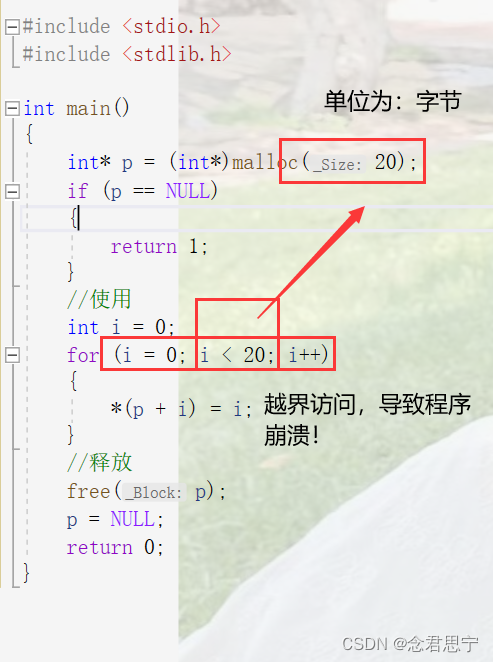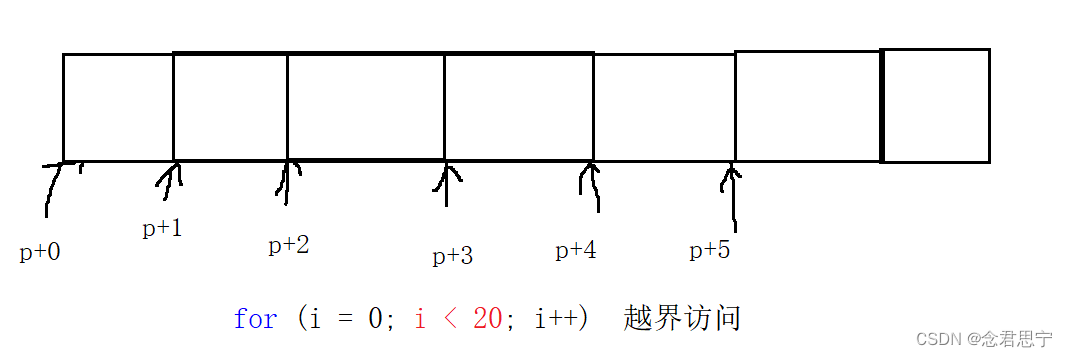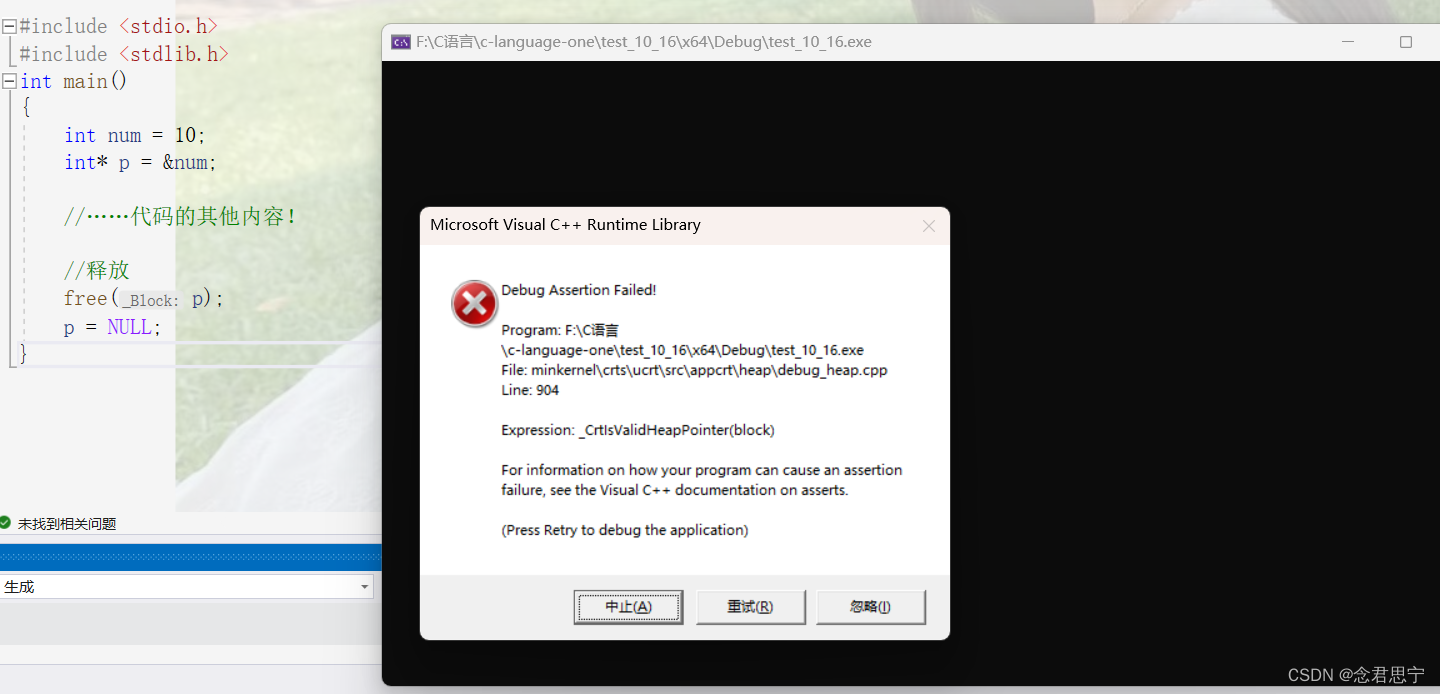There are many common dynamic memory errors, the author only cites a few typical examples for your reference! !
1. Dereference NULL (null pointer) ! !
Please see the code:
#include <stdio.h>
#include <stdlib.h>
int main()
{
int* p = (int*)malloc(20);
*p = 5;
return 0;
}Obviously, this code is wrong! ! There is no judgment after the malloc function fails to open up memory space! !
The malloc function opens up a space of 20 bytes, points p to the 20 bytes, p points to the starting position of the 20 bytes, and p acts as an integer pointer, dereferences it, and accesses 4 bytes! Assign 5 to *p, the first element is 5! However , although the code looks good, it seems a lot of rigorous! ! The reason is: the return value of the malloc function is not sure whether it is: NULL (null pointer), when malloc fails to open up space, it will return NULL (null pointer), and dereference the null pointer, an error will occur! !
Please see the correct writing code format below:
#include <limits.h>
#include <stdio.h>
#include <stdlib.h>
int main()
{
int* p = (int*)malloc(20);
if (*p == NULL)
{
//如果p为NULL(空指针)将进行怎样的操作??
perror("malloc");
return 1;
}
else
{
*p = 5;
}
free(p);
p = NULL;
return 0;
}
In the above correct code, we can see the change of the specific content through debugging! ! Here, the author will not do too much analysis! !
2. Out -of-bounds access to dynamic memory development !
Please see my code:
#include <stdio.h>
#include <stdlib.h>
int main()
{
int* p = (int*)malloc(20);
if (p == NULL)
{
return 1;
}
//使用
int i = 0;
for (i = 0; i < 20; i++)
{
*(p + i) = i;
}
//打印
for (i = 0; i < 5; i++)
{
printf("%d ", *(p + i));
}
//释放
free(p);
p = NULL;
return 0;
}In the above code: the malloc function opens up 20 bytes to store 5 integers, but in the for loop, out-of-bounds access is performed! So, the program crashes! !


3. For non-dynamically developed memory, use free to release it !
int main()
{
int num = 10;
int* p = #
//……代码的其他内容!
//释放
free(p);
p = NULL;
}In the above code: int num = 10; is a local variable, which is created when the program is entered, and destroyed when the program is exited, no free release is required!
At the end of this code: using free to release will cause the program to crash! !

4. Use free to release part of a dynamically allocated memory !
Please see my code:
#include <stdio.h>
#include <stdlib.h>
int main()
{
int* p = (int*)malloc(40);
if (p == NULL)
{
return 1;
}
int i = 0;
for (i = 0; i < 5; i++)
{
*p = i;
p++;
}
//释放
free(p);
p = NULL;
}The above code will also cause the program to crash! !
First of all, 40 bytes are opened up, Int type, which can store 10 for integer data, but, in the for loop, because for (i = 0; i < 5; i++); uses 5! ! , with the progress of p++, at this time, p has pointed to the position of the fifth element, not the starting position! !

However, in the release of free(p), the space behind cannot be released, causing the program to crash! ! !
When free is released, p no longer points to the starting position of dynamic memory development! ! So you need to use another pointer to traverse! !
Summary: For the space opened up by dynamic memory, be sure to record its starting position. If the starting position is not recorded, continue to ++ (go back), which will eventually lead to this space cannot be released! !
5. Dynamically open up memory and forget to release (memory leak) !
Please see my code:
#include <stdio.h>
#include <stdlib.h>
int* get_memory()
{
int* p = (int*)malloc(40);
//其他使用代码!!
return p; //返回动态内存空间的起始地址!!
}
int main()
{
int* ptr = get_memory();
//使用
//…………其他代码
//忘记释放了!!
return 0;
}In the part of the function body: The role of return p: is to return the starting address of the dynamic memory space ! !
But there is no free at the end, so there is an error! !
The correct free code is:
free(ptr);
ptr = NULL;Here, what is freed is: the space pointed to by ptr! !
Forgetting to release the dynamically opened space that is no longer used will cause memory leaks! ! Remember, the space opened up dynamically must be released and released correctly ! !